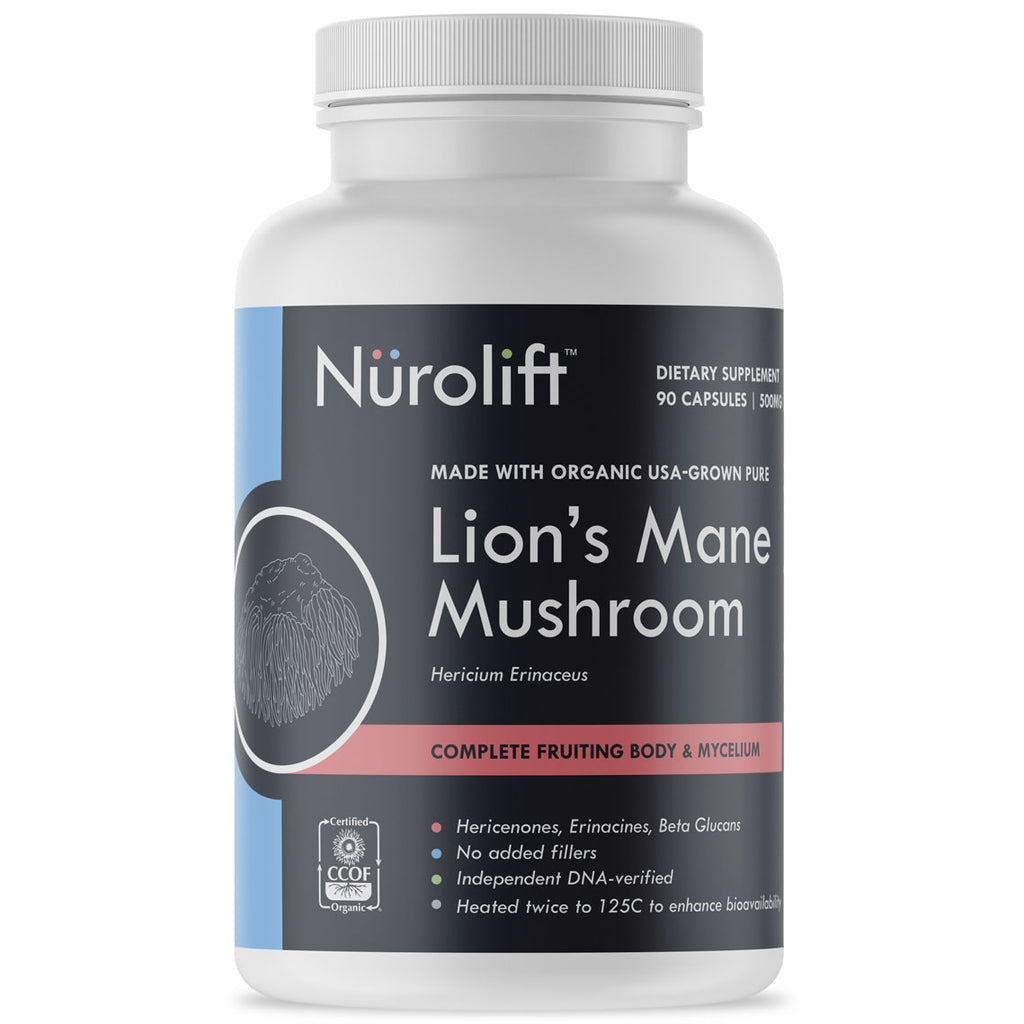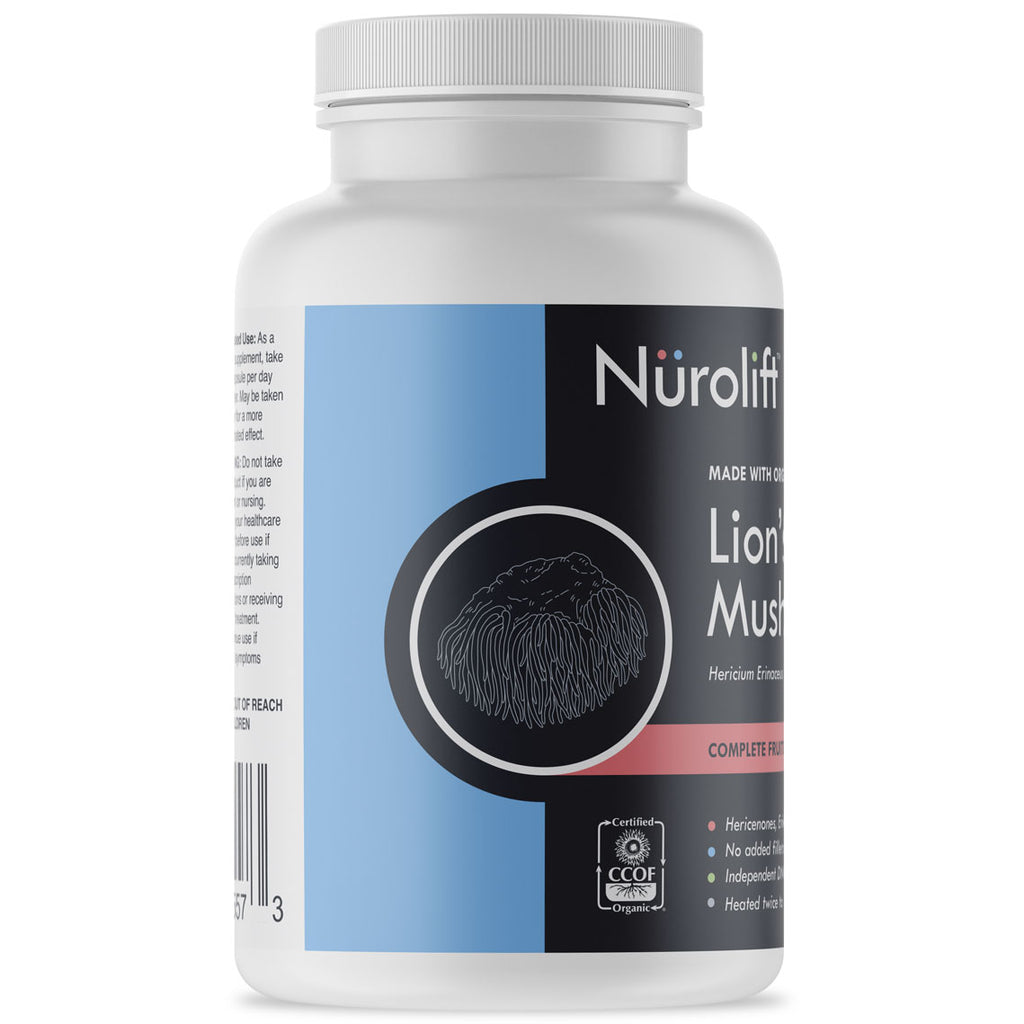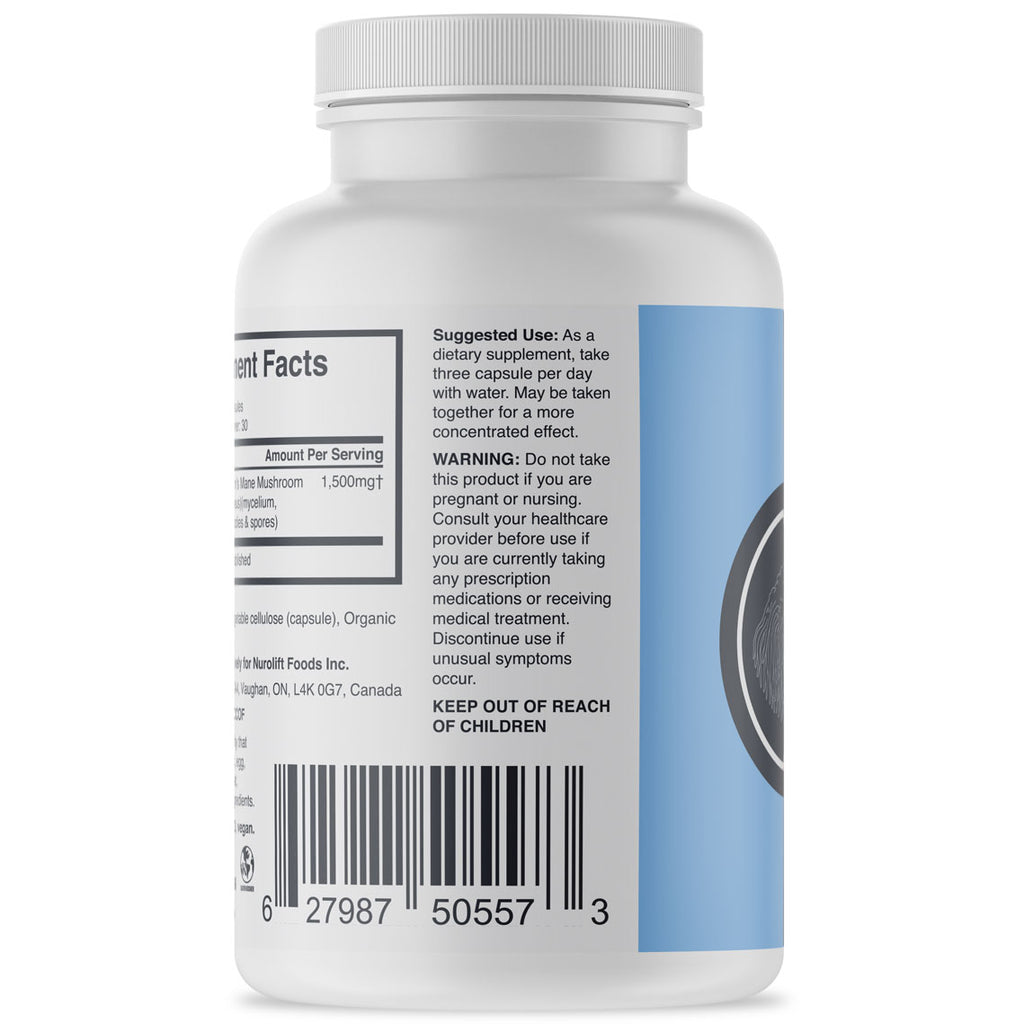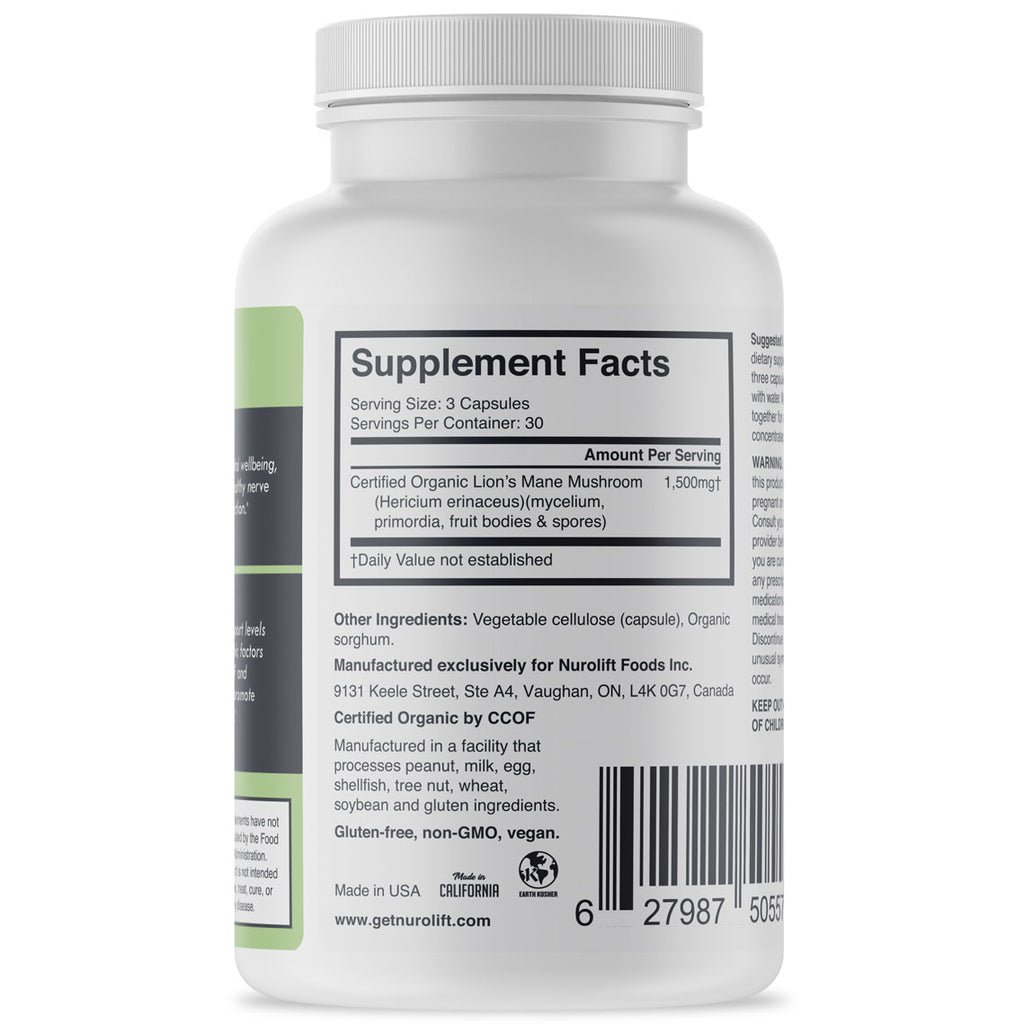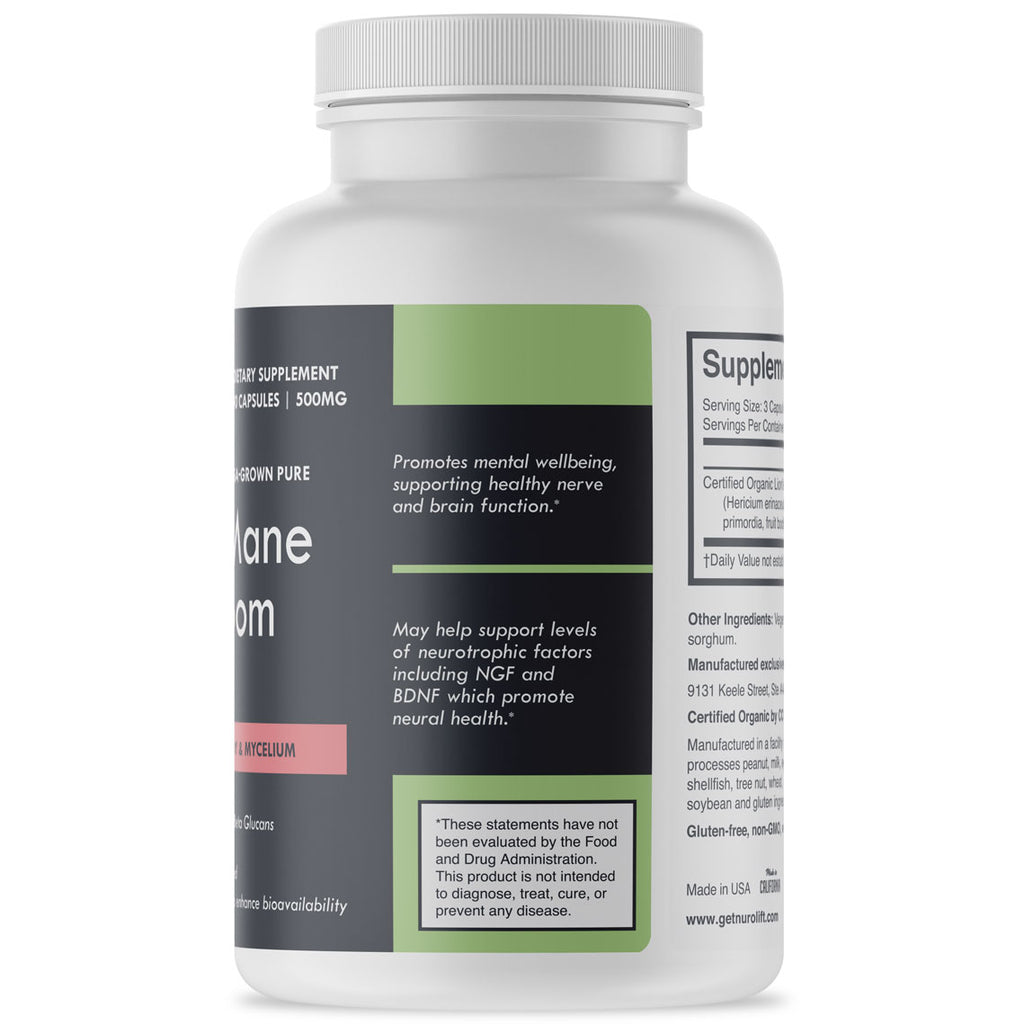Our Nurolift Lion’s Mane supplement is a full-spectrum mushroom product. This means that the dry Lion’s Mane powder within our capsules is made from the entire Hericium erinaceus fungi.
This is important to us because both major parts, the Fruit Body and the Mycelium, each contain unique bioactive molecules. Even just a quick scan of the preliminary human research and you’ll see there’s much attention being given to both of them, with similarly promising results.
What you’ll also find is that in most of the human research that deals with Lion’s Mane, they usually don’t supplement with extracts.
Both the Fruit Body and Mycelium each have their own chemically unique Beta Glucans, as well as unique low weight molecules. The Hericinones (low-weight aromatic compounds) exclusive to the Fruit Body, and the Erinacines (low-weight diterpenoids) that are found almost exclusively in the Mycelium.
An extract focuses on isolating just one type of molecule, but considering throughout the fungus there are so many different molecules being looked at, how could you ever pick just one?
We rather keep to the established practice of supplementing with the complete powder, there’s just no reason to leave anything out.
We also opt to have the purity of our Lion’s Mane supplement 3rd party verified through DNA-verification testing (see our results). This goes far beyond what regulations require.
When used alongside our independent β-d-Glucan testing, these tests combined offer the absolute best way we know to accurately measure quality.
Subjecting every production batch (lot) to this same standard lets us always guarantee a consistently pure product.

